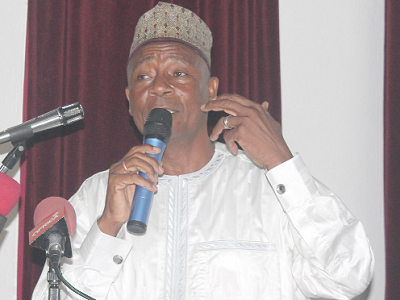
Stakeholders deliberate on improving education in Muslim communities
Stakeholders in Islamic education have met at a three-day national conference to strategise ways to improve education in Muslim communities in the country.
Advertisement
The conference was also designed to develop workable strategic plans to enhance higher educational achievement and the mobility in deprived Muslim communities.
Organised by the Baraka Policy Institute (BPI), a policy think-tank with support from the United States Embassy in Ghana, the conference was on the theme, “Towards increased positive educational outcomes for poverty alleviation in deprived communities in Ghana – the role of stakeholders in the Muslim community.”
Inner-City Ministry
Opening the conference, the Minister of Inner-City and Zongo Development, Mr Boniface Abubakar Saddique, pledged the readiness of his ministry to support in the implementation of the deliverable outcomes of the conference.
He described the conference as timely, saying as a minister with the responsibility to see to the development of the Inner-City and Zongo communities in the country, the issues of education in those communities were paramount.
Education and poverty
Mr Saddique noted that education was the greatest tool for poverty alleviation, as well as socio-economic development.
He said several studies had established a strong link between educational mobility and alleviation of poverty and, for that matter, the general improvement in the life of the people.
Mr Saddique charged the participants to involve themselves in the deliberations of the conference in order to come out with realistic action plans that would lead to greater educational achievements among the youth of the deprived communities.
He commended the BPI for focusing on research and advocacy on education, adding that the main mediation for poverty was education.
USAID contribution to education
The USAID Education Officer, Madam Yvette Malcioln announced that the top priority for the US in Ghana was to work with the government to improve reading and Mathematics achievement in the primary school.
She said reading, writing and arithmetic were the three Rs that every Ghanaian child needed to master for a chance at a good life, saying, “the three Rs are the bricks for national development and fighting poverty.”
Madam Malcioln, said the USAID was scaling up early grade reading activities in all 10 regions and 7,400 schools, explaining that the USAID learning project was supporting the Ministry of Education to train 31,000 teachers to improve the reading achievement for 1.1 million Ghanaian children in the KG Two, Primary One and Two.
She said there were many Islamic primary schools, teachers, headteachers and students who were receiving assistance through the USAID learning project.
BPI on advocacy
The Executive Director of the BPI, Mr Haruna Zagoon-Sayeed, noted that education was a tool to remove poverty.
He said the conference sought to look at ways to tackle the poor state of Islamic basic schools and to scale up quality education at that level in order to address the shortfall of Muslim students at the tertiary level.
Mr Zagoon-Sayeed announced that through the advocacy of the BPI and other partners, Islamic studies had been included as one of the examinable subjects at the Basic Education Certificate Examination (BECE).



